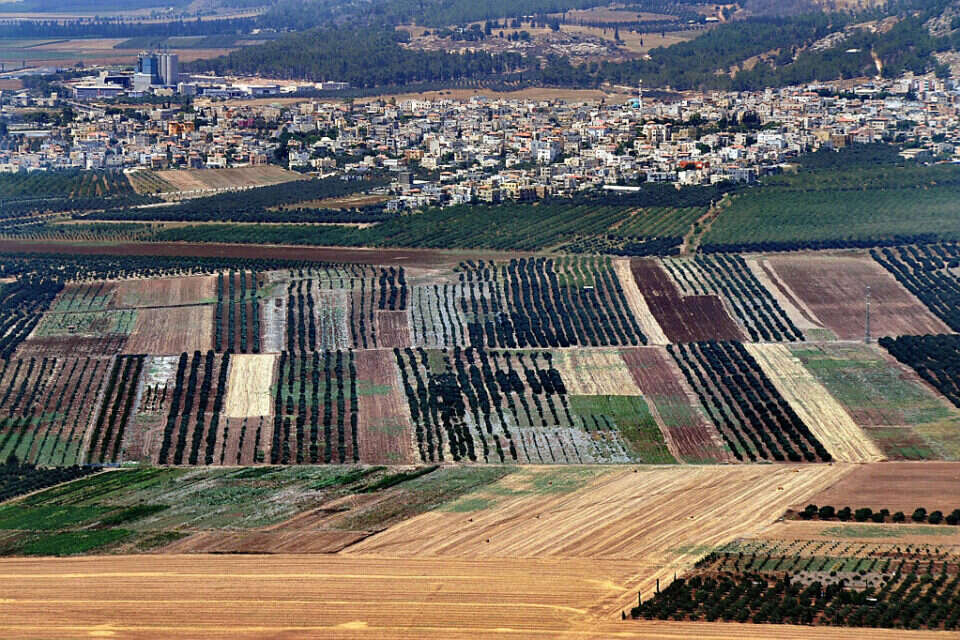These days, the Israel Lands Council has decided to give priority to locals in land allocations in tenders in minority localities.
The council, headed by Minister of Construction and Housing Zeev Elkin, authorized the management of the Real Estate Authority to determine that in minority localities with less than 30,000 residents it will be possible to increase the proportion of locals to 75% in the center, and in northern and Haifa areas. -100% of locals preference.
According to the authority's announcement, "the decision was made with the aim of facilitating marketing in those localities where difficulties arose in marketing the land due to not giving priority to locals."
According to the wording of the decision, it can be assumed that this is an opposition to open tenders in the Arab localities that would have allowed members of another clan to apply in the tender - a phenomenon that exists in most minority localities.
In any case, it is undisputed that the Arab communities in Israel need to strengthen and regulate planning and construction.
But in the last decade it seems that the state has decided to reverse the trend: on the one hand to strengthen the Arab settlements, and on the other hand to trick difficulties into expanding rural settlement and in fact almost bring about a freeze.
The explanatory memorandum to the resolution approved at the last Israel Land Council meeting stated that "the policy of allocating land for residential purposes in minority localities recognizes and gives weight to the community, cultural and emotional affinity of local residents to the land of the locality where they were born, educated and raised. ".
These explanations certainly make sense when they set a cross-cutting policy that applies to locals wherever they are set, but the decision to give preference to locals only because of origin or religion is because of constitutional discrimination.
This is not a zero-sum game.
The strengthening of Arab settlements should not come at the expense of rural settlement - and vice versa.
Strengthening settlement is a national interest, not just a Zionist one.
Because in practice, there is today stagnation of rural settlement in the Galilee.
the reasons?
A rural locality in a priority area is limited due to NAP 35, and if that is not enough, it does not have the option to prefer the locals after it reaches the threshold of 400 families. The rules of preference for locals or the possibility of holding an absorption process of families, similar to members of minorities.
In view of the situation, Interior Minister Ayelet Shaked initiated a bill that came to amend Amendment 8 to the Cooperative Societies Ordinance, which prohibits the admission of people on the basis of age, religion, community, etc. to localities with fewer than 400 households.
Under the bill, the maximum number of homes in localities with admissions committees will increase from 400 to 600.
The gap between 400 households and 700-600 families is not significant at the macro level, but is critical to the ability of Jewish communities to grow instead of fade.
Because the importance of the ability of a small community in a rural community to absorb families that are appropriate for community life and involvement in the rural space cannot be underestimated.
Surprisingly, it is precisely the Zionist left-wing parties in government that are pushing the law out of the thought that the law ostensibly excludes entire populations and harms human dignity, but in doing so, those parties directly harm the settlement enterprise.
The amendment to the bill does not address the preference of locals in rural localities that are under 30,000 people.
What is it about?
On maintaining a controlled absorption and not just of the locals, and this up to 600-700 families which is about 2,000 to 2,500 persons.
We call on the Knesset members in the Labor Party and in Meretz to recover and not oppose Amendment 8. This is not a matter of right and left, but of strengthening the Galilee.
Were we wrong?
Fixed!
If you found an error in the article, we'll be happy for you to share it with us

